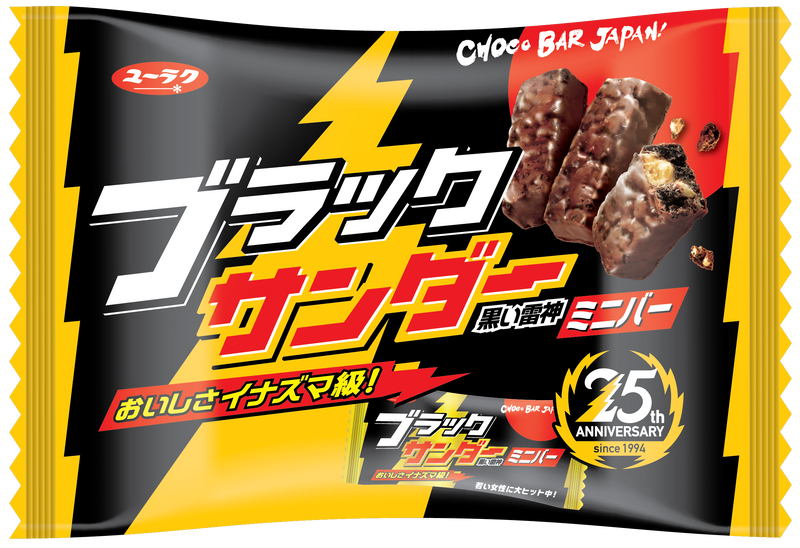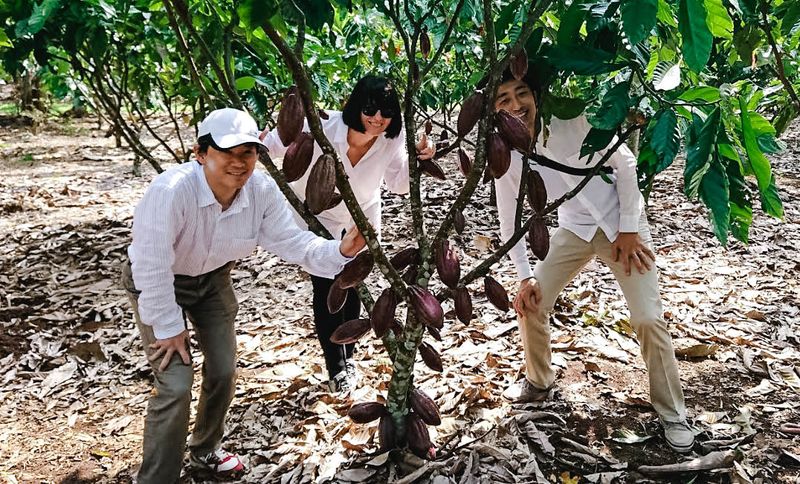Apr 16, 2020
Black Thunder strikes out toward sustainable future with help of industry giant

Let’s declare an interest off the bat, Black Thunder ranks among our favorite of the chocolate snacks that line the shelves of stores across Japan.
While maker Yuraku Confectionery Co., Ltd. continues its daliances with flavor varieties of the long-time Japanese snack staple, the original version, in its iconic lightning bolt orange and black packaging, surely lends itself to the mantra, “if it ain't broke, don’t fix it.”
And yet fixing it for the better appears to be the intent of Yuraku Confectionery who in March this year announced a goal to make all of its chocolate products 100 percent sustainable by 2025, starting with the popular Black Thunder.
In a boost to Yuraku Confectionery’s efforts toward a sustainable future Barry Callebaut Japan, the Japanese subsidiary of the world’s leading manufacturer of high-quality chocolate and cocoa products Barry Callebaut, announced on April 9 a partnership with the makers of Black Thunder.
Through the collaboration, Barry Callebaut Japan and Yuraku Confectionery, one of the pioneers of sustainability in Japan according to the chocolate giant, hope to set an example in the Japanese market, the future of which they believe lies in sustainability. The pair are also calling on other companies in the chocolate industry to get on board.
"Now is the time to act,” said Pascale Meulemeester, representative director and president of Barry Callebaut Japan. “New Japanese consumers not only want chocolate to be delicious, they want it to be good for the planet and for people.”
“This is a great opportunity for chocolate manufacturers and artisans to come together with the goal of making sustainable chocolate the norm,” said Meulemeester citing a 2019 survey conducted by Barry Callebaut which found that 72% of Japanese consumers consider sustainability to be important when buying food and beverages.
70% of Japanese consumers associate sustainable chocolate with “good feeling,” “better quality,” and “trust,” according to the maker’s Forever Chocolate Sustainability Survey (June 2019),
For Yuraku Confectionery, its own recently announced sustainability goals come on the back of visits to Ghana, the West Africa nation responsible for 73 percent of Japan’s cocoa imports, a key ingredient in chocolate production, according to the maker.

Through efforts toward sustainable chocolate the makers of Black Thunder are takling the issue of child labor, where in Ghana cocoa farms account for 94 percent of cases.
In February this year the company began using raw ingredients for some of its products from suppliers working to eliminate child labor with a view to using only those raw cocoa ingredients from suppliers working to eliminate child labor across all of its products by 2025.
Yuraku Confectionery will also be working with NGOs and other organizations to support their project, including the Cocoa Horizons Foundation, launched by Barry Callebaut in 2015 with the mission to “improve the livelihoods of cocoa farmers and their communities through the promotion of sustainable, entrepreneurial farming, improved productivity and community development.”
"Sustainability is not for today but for the future,” said Tatsunobu Kawai, president of Yuraku Confectionery.
“As this effort is what consumers are looking for, we are looking to work with the Barry Callebaut and Cocoa Horizon programs to be the leader in making sustainable chocolate the market standard."
2019 marked the 25th anniversary of the chocolate snack Black Thunder which first hit the shelves in Japan in 1994. Annual sales of Black Thunder (and its variations) in terms of volume have gone on to exceed 200 million units.



0 Comments